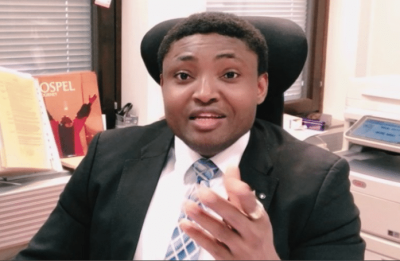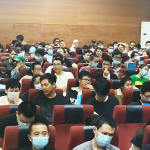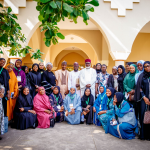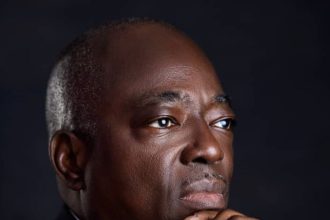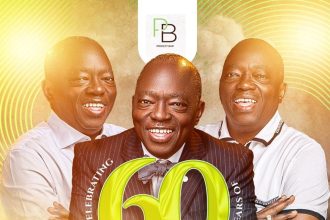Legal experts have issued warnings that individuals providing financial support to Simon Ekpa, a detained separatist leader affiliated with the proscribed Indigenous People of Biafra (IPOB), could face terrorism charges under Nigerian law. Ekpa, currently in detention in Finland, is alleged to have continued receiving donations from supporters seeking to advance the IPOB cause.
Terrorism: Fundraising and Public Reactions
A video posted on X (formerly Twitter) by a user identified as @Akparawasunny, purporting to be IPOB’s “Minister of Information,” solicited donations for what was described as “Biafra Freedom.” A woman in the video, identifying herself as Ada Biafra, encouraged supporters to donate funds for ammunition, using euphemistic language like “buying groundnuts for gallant men.”
The appeal elicited mixed reactions on social media:

- Supporters expressed continued allegiance to the separatist movement and reiterated their commitment to the cause of Biafra.
- Critics denounced the donation drive as fraudulent or harmful, accusing Ekpa and his associates of exploiting the movement for personal gain.
Terrorism: Legal Implications
Senior Advocate of Nigeria (SAN) Kunle Edun highlighted that Nigeria’s Terrorism (Prevention) Act criminalises both terrorism and the financing of terrorism. Sections 2, 21, and 22 of the Act explicitly prohibit providing financial or other support to terrorist activities, with penalties including life imprisonment or the death penalty if loss of life occurs.
He noted that crowdfunding for purposes linked to terrorist activities could lead to prosecution, provided there is evidence that donors were aware or should have been aware of the illicit intent behind their contributions.
Legal practitioner Ayo Ademiluyi stressed that, given IPOB’s designation as a terrorist organisation, any financial contribution to it constitutes a crime. He explained that crowdfunding for such a group amounts to being an accessory to terrorism under Nigerian law.
Similarly, legal analyst Eze Onyekpere likened funding IPOB or its affiliates to supporting groups like Boko Haram, underlining the serious implications of such actions.
Prosecution Challenges
Experts emphasized that prosecuting individuals for financing terrorism requires substantial evidence. Authorities must demonstrate that donors knowingly supported activities classified as terrorist acts, whether through direct or circumstantial proof.

Broader Context
IPOB was designated a terrorist organization in Nigeria in 2017, making all activities, affiliations, and support for the group illegal within the country. The Nigerian government has intensified crackdowns on the group and its supporters, particularly concerning violent agitations for the secession of southeastern Nigeria.
The legal discourse surrounding this issue underscores the gravity of funding proscribed groups and the potential consequences for those found complicit.



